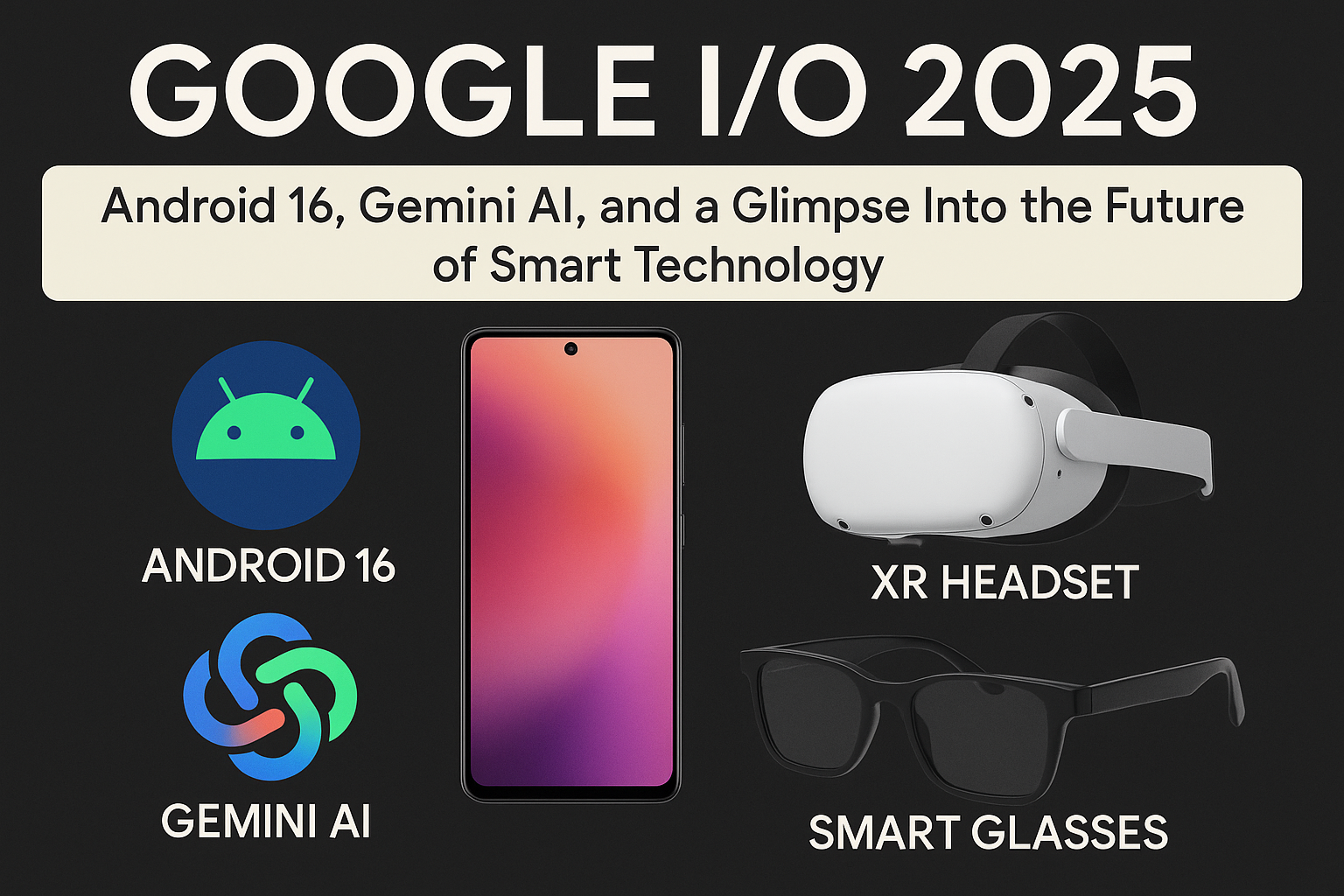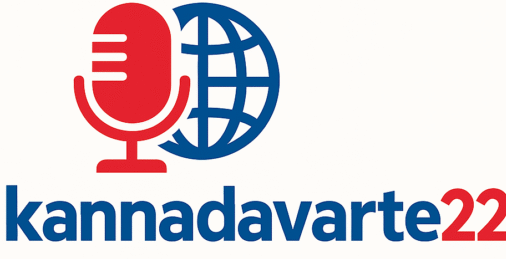Google I/O 2025 has officially kicked off, and as expected, the annual developer conference has brought a wave of innovative announcements. With major upgrades to Android, advancements in AI through Gemini, and the potential unveiling of futuristic hardware like XR headsets and smart glasses, Google is clearly focused on shaping the next decade of tech.
In this blog post, we dive deep into all the major highlights from Google I/O 2025 and what they mean for consumers, developers, and the broader tech industry.
Android 16: Smarter, Safer, and More Expressive
Android 16 is perhaps the most anticipated announcement this year. Google has confirmed a new design evolution called Material 3 Expressive, focusing on fluid transitions, dynamic themes, and smarter personalization.
Here are the key updates in Android 16:
- Dynamic UI: Android 16 will bring improved animations and transitions, especially optimized for foldable and tri-fold smartphones.
- Smarter Lock Screen: The lock screen now supports real-time widgets like live sports scores, package tracking, and contextual reminders.
- Advanced Privacy Controls: A new “Privacy Dashboard 2.0” will allow users to control what apps access in real time, including background camera and microphone usage.
- AI-Driven Features: Expect better predictive text, smart replies, and even context-aware app suggestions powered by Gemini AI.
Developers will also find new APIs and performance tools, making Android 16 more developer-friendly than ever.

Gemini AI: Google’s Most Ambitious AI Yet
Gemini AI is Google’s multi-modal artificial intelligence model and it’s rapidly expanding. At I/O 2025, Google revealed that Gemini will soon be integrated across all smart devices, including:
- Smartwatches (Wear OS)
- Smart TVs (Google TV)
- Cars (Android Auto)
- Chromebooks and Pixel devices
Gemini AI will power more natural conversations with Google Assistant, personalized learning on Chromebooks, and smarter in-car navigation with real-time suggestions.
In a live demo, Gemini AI handled a multi-language query, showed contextual awareness, and even generated on-the-fly summaries from long emails. This signals Google’s focus on building a cohesive, intelligent ecosystem.
XR Headset: Google’s Move Into Extended Reality
One of the more surprising teasers at the event was Google’s announcement of a forthcoming XR (Extended Reality) headset in partnership with Samsung and Qualcomm.
This new headset is expected to combine virtual and augmented reality experiences, and will likely run on a custom Google OS for XR, optimized for immersive applications such as:
- Virtual meetings
- 3D navigation
- Spatial web browsing
- Immersive gaming
While no official launch date was given, developers are being encouraged to begin building XR-ready apps using the new Google XR SDK.
Visit google for more information about this postSmart Glasses: AI in Your Field of Vision
In a direct challenge to Meta’s Ray-Ban smart glasses, Google teased a pair of AI-powered smart glasses. Though still in the prototype phase, these glasses are expected to:
- Translate foreign languages in real time
- Display notifications and directions in your line of sight
- Record and summarize meetings or lectures
- Use Gemini AI to respond to voice commands
This development hints at Google’s renewed interest in wearable computing — combining AI, design, and convenience.
Pixel Hardware & Ecosystem Updates
Though the main focus was software and AI, Google also gave a sneak peek at upcoming Pixel devices, including:
- Pixel 9 and Pixel 9 Pro
- Pixel Fold 2
- Pixel Watch 3
Each device is expected to deeply integrate Gemini AI features for smarter photography, health tracking, and predictive tools. Additionally, the new Pixel devices will ship with Android 16 out of the box.
Google also introduced updates to ChromeOS, Google Cloud Tools, and Firebase, promising better tools for developers building cross-platform applications.
Google I/O 2025 is not just about launching new products — it’s about redefining how humans interact with technology. From Android 16’s smarter user experience to Gemini AI’s powerful capabilities and Google’s bold vision for XR and smart wearables, the future of tech looks deeply intelligent, connected, and intuitive.
If you’re a developer, designer, tech enthusiast, or just a curious consumer, there’s never been a better time to engage with the Google ecosystem.
Stay tuned for more in-depth coverage as we analyze how these technologies will roll out in the coming months.
Visit KannadaVarte22 for more information